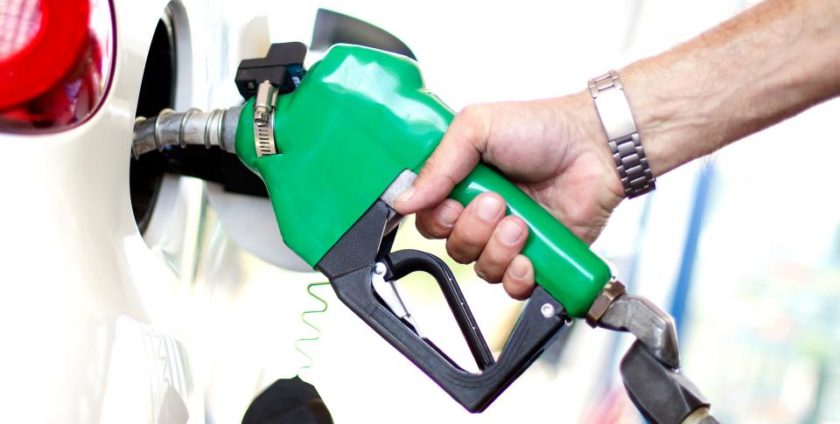FG To Increase Petrol Pump Price
The Federal Government Thursday admitted paying as much as N120 billion to subsidise the price of petrol monthly.
This was disclosed by the Group Managing Director of the Nigerian National Petroleum Corporation (NNPC), Mele Kyari, at the fifth edition of the special ministerial briefings coordinated by the presidential communications team.
The sum expended monthly is higher than the N70 billion the government budgeted for the provision of Universal Basic Education (UBEC) in the 2021 budget, as well as the N45.19 billion allocated for immunization.
For selling Premium Motor Spirit (PMS) otherwise called petrol at N162 per litre instead of the current landing price of N234 for a litre, the Federal Government says it is now paying as much as N120 billion monthly to subsidize the estimated 60 million litres of petrol the country consumes daily.
This is coming as the NNPC, the government agency bearing the burden of the subsidy, insisted that the pump price of the product will remain N162 per litre in the month of April to allow government dialogue with the organised labour on the situation.
But the assurances notwithstanding, the Group MD, Kyari, has insisted that price would inevitably increase, stressing that market forces must be allowed to determine the pump price of petrol in the country.
Kyari lamented the burden NNPC has inflicted on itself by the ongoing subsidisation of the cost of PMS in the country, saying that sooner than later Nigerians have to pay the actual cost for the commodity.
He said the NNPC absorbs the cost differential, which is recorded in its financial books. “Our current consumption is — evacuation from our depots about 60 million liters, per day. We are selling at N162 to the liter. Current market price is N234, the actual market price today. The difference between the two, multiply by 60 million times thirty, will give you the real price per month. If you want exact figures from our book, I do not have them from this moment but it’s between N100 billion and N120 billion per month. We cannot continue to bear this.”
Stakeholders in the industry, while insisting that the government may be embarking on an economically devastating mission with the continuous drama on the pump price of petrol, said sustaining an N120 billion monthly subsidy was not sustainable.
The current crisis followed an exit from the payment of subsidy, which was announced in March last year and eventual deregulation of the downstream sector. Under the arrangement, the control of pump price is expected to be determined by market forces, especially crude oil price and foreign exchange.
Labour unions, especially the Nigerian Labour Congress (NLC) and the Trade Union Congress (TUC), which couldn’t stand the speed at which the pump price was heading as crude oil price rebalances at the international market, had held government by the throat after succeeding in reducing the price from N167 to N162 per litre last year.
The increase in the price of crude oil at the international market, which should have been a good development for the implementation of the 2021 budget became a curse with a direct consequence on the pump price of petrol since the exchange rate and the international crude price determines the pump price locally.
Organised labour had returned to its earlier position after Minister of State for Petroleum Resources, Timipre Sylva and Kyari hinted of a price increase in late January. Since then, government had backpedalled on a liberal market, thereby bringing back subsidy payment, which has always be marred by corruption.
The exact figure for daily petrol consumption used to determine subsidy has been difficult for the Ministry of Petroleum Resources. After the Federal Government shut the borders to address smuggling, Sylva had said the daily consumption dropped from 60 million to 52 million but the Department of Petroleum Resources (DPR) countered that revelation, saying the figure stands at about 38.9 million litres per day.
Energy watchers had, however, raised concerns that the government had once again jeopardised the attempt to deregulate the downstream sector of the petroleum industry, crippling budget implementation and hindering the growth of the Excess Crude Account. They also raised concern over the sustainability of subsidy given the current state of the country’s economy, especially the continuous borrowing to finance the system.





